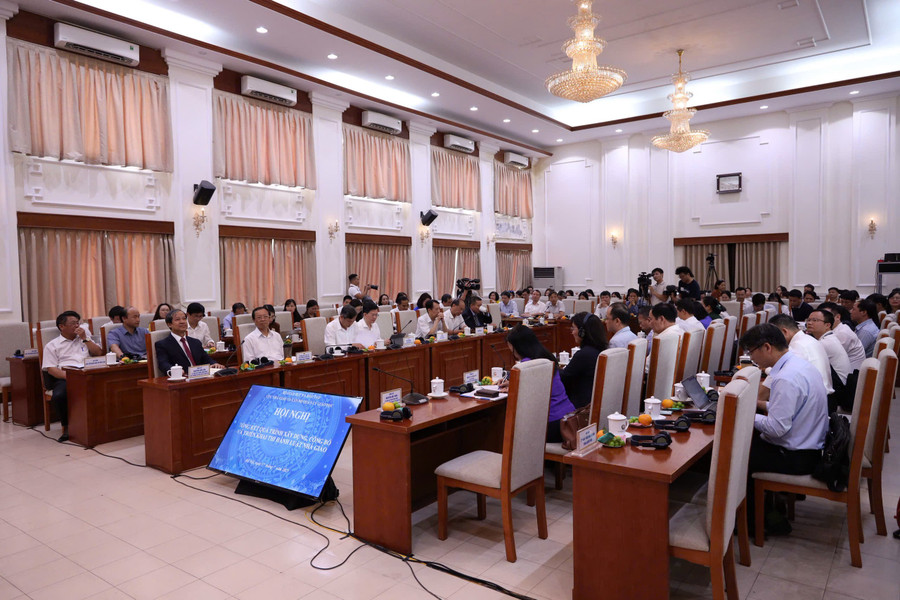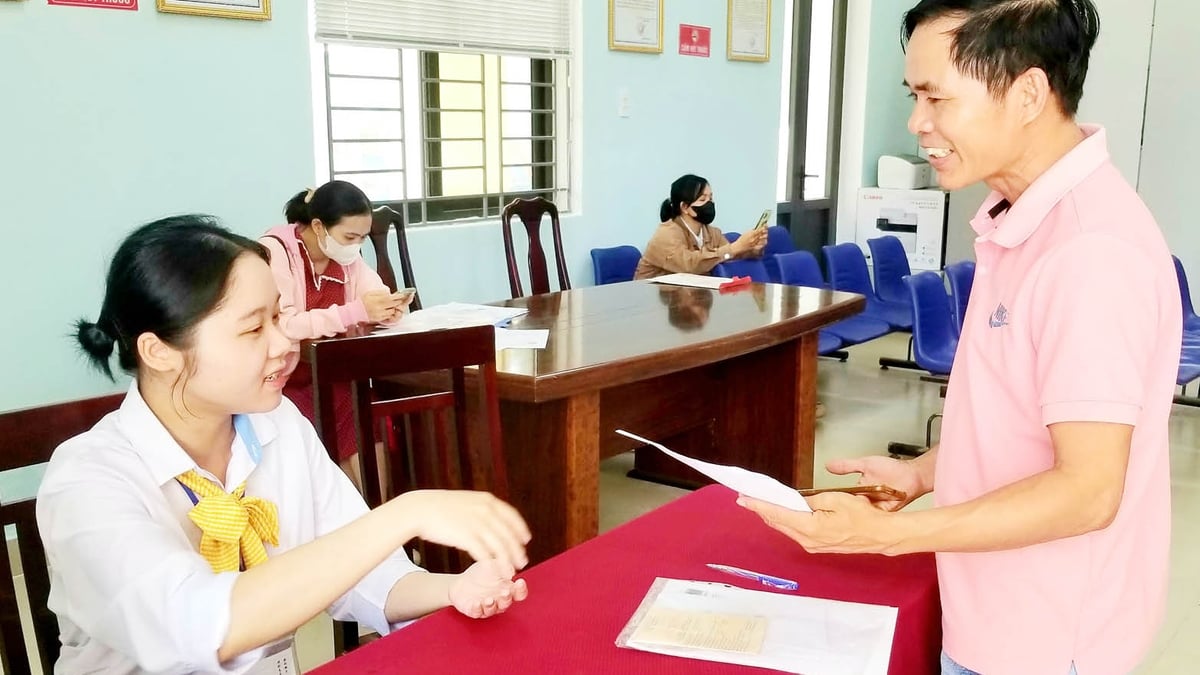Landmark achievement
On the afternoon of July 17, the Ministry of Education and Training held a conference to summarize the process of building, promulgating and implementing the Law on Teachers.
Speaking at the conference, Mr. Carlos Vargas - Head of UNESCO's Teacher Development Section, Chairman of the Secretariat of the International Working Group on Teachers forEducation 2030 - on behalf of UNESCO congratulated Vietnam on achieving an impressive, landmark and breakthrough achievement, which is the promulgation of the Law on Teachers - a comprehensive legal framework, recognizing the essential role of teachers in education.
Mr. Carlos Varga said that the Law on Teachers has great significance, specifically: Creating a favorable environment for the development of the teaching staff; teachers have the necessary support to continuously develop their expertise and careers; affirming the role and responsibility of the State in ensuring time and financial resources, so that policies can be effectively implemented.
“We are pleased that the Law has provided a framework that reflects a global vision of the future of teaching,” said Carlos Vargas.
Sharing some comments on global policy trends and recommendations to improve the quality of teachers, Mr. Carlos Vargas mentioned the UNESCO global report published in 2021: “Reshaping our future together: A new social contract on education”.
The report affirmed the central role of teachers in building a quality and equitable education; teaching must be respected as a collaborative activity of knowledge creation, not simply knowledge transmission…
The report also forms the basis for consultations for the 2022 High-Level Education Transformation Summit and the Teaching Profession Compact at the United Nations Headquarters in New York, USA. There, the role of teachers in education transformation is further emphasized; there is broad consensus on the need to support professional development for teachers; and the establishment of a High-Level Council on Teachers.
Mr. Carlos Vargas also mentioned the Global Teacher Report: Addressing the Teacher Shortage and Transforming the Teaching Profession; sharing the serious shortage of teachers worldwide and one of the reasons is that teachers leave the profession. This is directly related to working conditions and legal instruments. From there, Mr. Carlos Vargas once again affirmed that the promulgation of the Teacher Law is the right step.

2 key principles for transforming the teaching profession: collaboration and lifelong learning
UNESCO and the international community have in recent years identified two key principles for transforming the teaching profession: collaboration and lifelong learning.
Teaching should be seen as a collaborative profession. This has implications for teacher policy. Carlos Vargas gave a vivid example of this collaboration from the participation of the 1.6 million Vietnamese teachers in the development of the Teachers Law. This collaboration also includes policy decision-making, curriculum development, assessment design, and other areas of education. Collaboration is also important in professional development - how we create learning communities so that teachers do not feel isolated in the classroom, but feel part of a professional community, supported and trusted.
Mr. Carlos Vargas emphasized that we need to see teachers not only as program implementers but also as public intellectuals with autonomy, capacity to act and trust; from there, they can participate in the decision-making process at the national and international levels.
This also helps improve professional motivation, as teachers leave the profession partly because they are unsupported and unmotivated.
Regarding lifelong learning, according to Carlos Vargas, this approach does not only focus on the classroom, but also includes other forms of learning - in the digital environment, the parent community, colleagues, and the school community.
Some policy recommendations
In making policy recommendations, Carlos Vargas first emphasized the need to diversify the teaching profession: ensuring appropriate gender representation. For example, preschool teachers are predominantly female, but at the university level – especially in STEM fields – the male ratio is dominant.
There is also a need for teachers to be present in rural, urban, and disadvantaged areas, with linguistic and cultural diversity, so that the teaching profession truly reflects the communities they serve.
Second: improve working conditions. Teachers leaving the profession is related to material conditions, income, workload, lack of facilities. But there is also a spiritual factor - that is recognition, trust, respect for teachers in the role of decision makers.
Teacher retention strategies such as stable contracts and clear advancement opportunities from initial training to retirement are needed.
As such, we need to transform professional development into a lifelong learning journey that is teacher-led, collaborative, and places teachers at the center of educational decision-making; thereby, they contribute to the transformation of education, improve the quality of learning, and ultimately for the development of students and communities.
Source: https://giaoducthoidai.vn/ban-hanh-luat-nha-giao-la-thanh-tuu-an-tuong-mang-tinh-buoc-ngoat-post740274.html





































































































Comment (0)